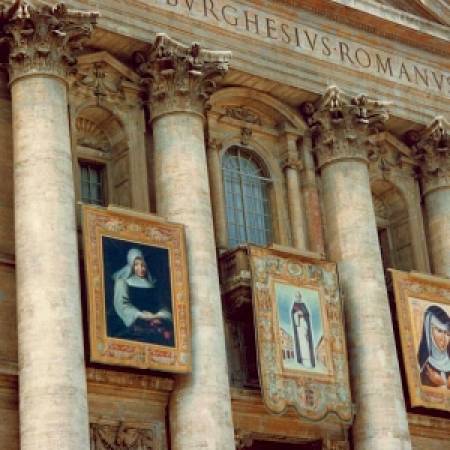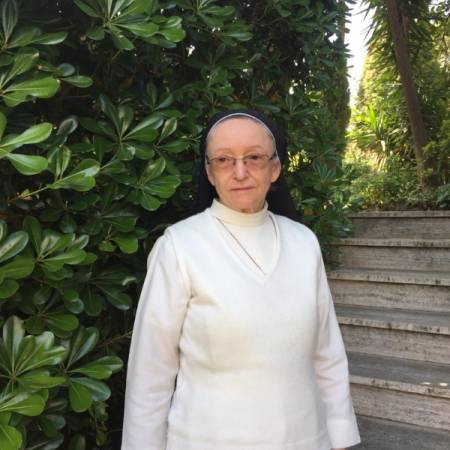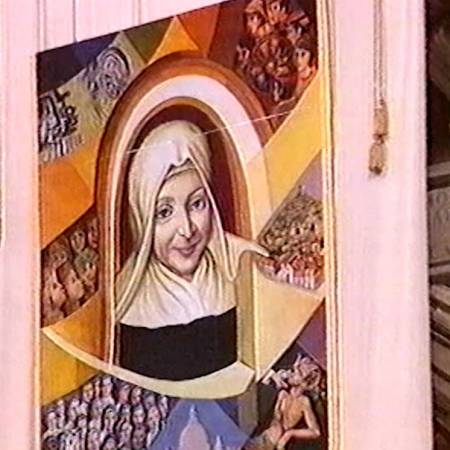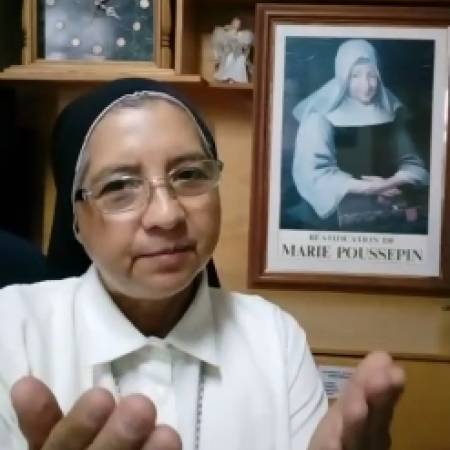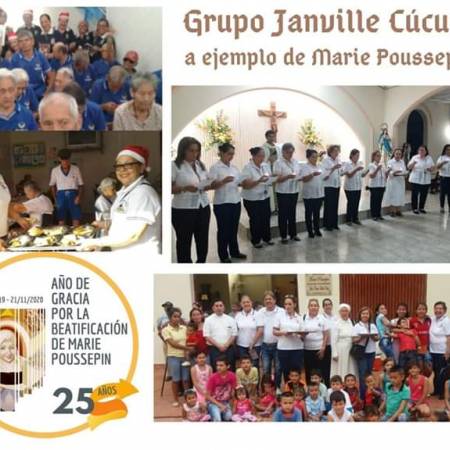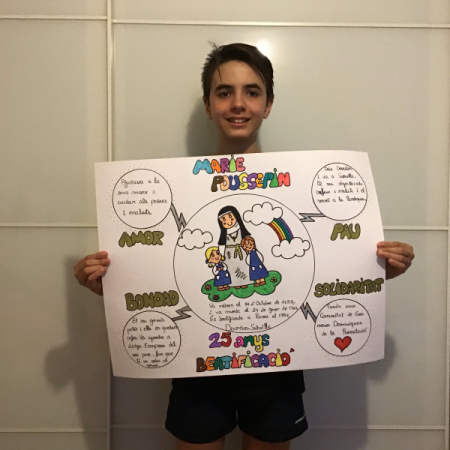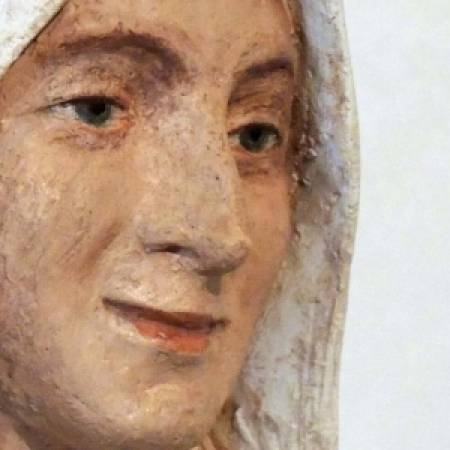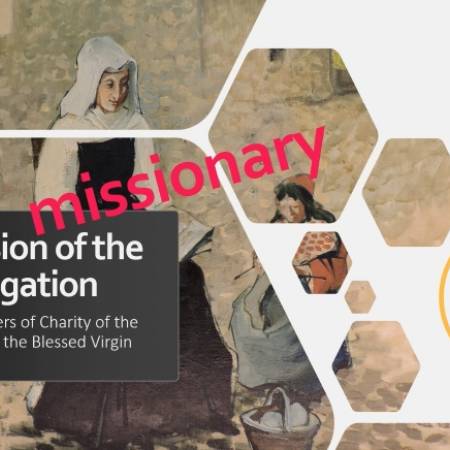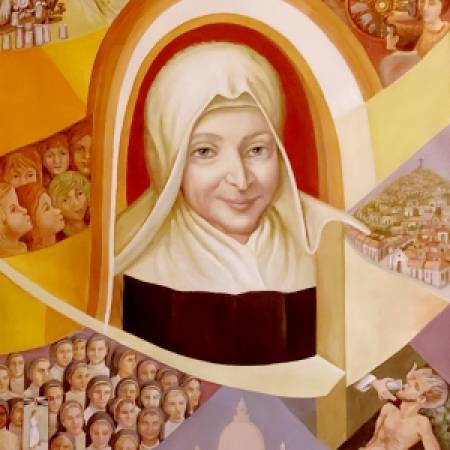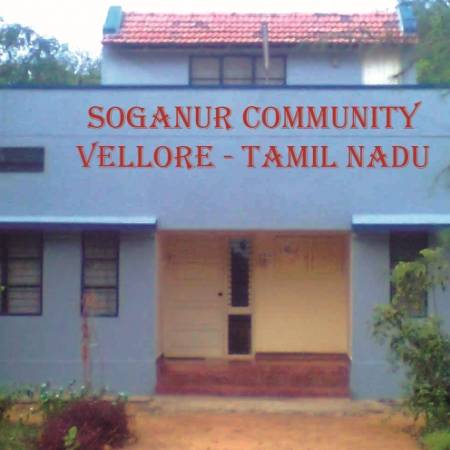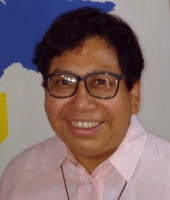DOWNLOAD IN PDF:
By SR. EVELIN CAROLINA HERNÁNDEZ CÁCERES* (EL SALVADOR).- This reflection is an approach to the life and work of Marie Poussepin (henceforth MP) as one who approaches a beautiful fabric, woven in the spinning wheel of the life of a holy woman, but in which I will try to follow only two threads with the magnifying glass of social justice, non-violence and peace; her life combines the threads with the magnifying glass of social justice, non-violence and peace; her life combines the threads of the warp: experience of God, with the plot that crosses it: creativity and audacity in charity.
Social Justice[1]
MP, the Social Apostle of Charity, listened to the Word with her mind and heart and this led her to Sainville “to devote herself to the instruction of children” and “having joined with some young women, they endeavoured to practise the divine rule that the Lord left us in the Gospel”[2]. She is an example of true and authentic evangelization, listening to the Word and putting it into practice.
The apostle does not make himself, but the Lord does; therefore, he needs to refer constantly to Him. Encounters with the Lord are decisive in the life of MP, she knows she is sent, that is, she is a bearer of a message; she has received a mission that must be carried out in his name, putting absolutely in the background any personal interest. She will dedicate her whole life to this mission received.
“Apostle” is not and cannot be an honorary title, but concretely and dramatically commits the entire existence of the subject concerned”[3]. A typical element of the true apostle, brought to light by St. Paul, “is a kind of identification between the Gospel and the evangelizer, both destined to the same fate”, all the sufferings associated with the mission are crowned by the “joy of being the bearer of God’s blessing and the grace of the Gospel”.
MP feels sent to preach, sent by God for a specific mission: charity; which according to Sr. Maria Vilma Leiva M. is “a charism that awakens critical attitudes to discern and denounce situations of sin, that works to overcome unjust situations, that is transformed into relationships of peace, that reveals to the poor and the weak their own dignity, that challenges the strong and the powerful, that provides women with elements to come out of the prostration and slavery to which a consumerist and hedonist society subjects them; that educates and believes in youth, children and families, in humanization, harmony, solidarity, Christian values; that organizes and stimulates the construction of housing and services such as wáter, vital for life; that gives back to the sick their faith in life and in the love of God, that invites to personal conversión and is a transparecy of God for the members of the community.”[4]
Social justice permeates the social doctrine of the Church and the principles that underlie it are grounded in the Gospel, Christian tradition, philosophical-theological reflection and elaboration, and the magisterium of the church itself. These principles: The dignity of the human person, the common good, the universal destination of goods, subsidiarity and solidarity, participation[5] as well as the preferential option for the poor[6]. These are permanent ethical principles, not mere variable historical judgements; the Social Doctrine of the Church evolves and adapts to the changing conditions of the times.
From its very beginning, the Church’s social doctrine has affirmed the inviolable dignity of the human person, which is intrinsic to every human being because he or she is the image of God. The fundamental equality of human beings before God has as its consequence the impossibility of justifying any discrimination before human laws.
We must take into account that the last years of the 17th century were not easy for France, hunger and epidemics were abundant and the number of poor and sick people increased. In a modest approach to the life and work of MP we can see how she knew how to let herself be affected by the signs of the times by giving them an interpretation from the eyes of God, “to all that charity could inspire in her”, “she saw what was right in the eyes of the Lord and she fulfilled it”.
St. John Paul ll’s Apostolic Letter to the Congregation where he authorizes her to be called Blessed reflects this; he says of Marie Poussepin: “Gospel, simplicity and charity in the service of the little ones and the sick.
In her responsibilities as head of the company, she met the needs of the world of work.
The commitment of the Congregation together with the little ones for justice and dignity of each child of God. Be a witness to the love of the world with the richness of community life”[7].
In her Reglemens we find many observation aimed at respecting and promoting the dignity of each human being, with an option for the girls and young people who are in a situation of greater vulnerability; “The sisters who are employed in the schools shall remember that they are obliged to fulfill their duty with regard to the instruction and education of the youth, not only out of charity, but even out of justice especially in the establishments founded, or in those in which they receive payment from the girls. They shall devote themselves more particularly to those who are most in need of it .”[8] For the reception of postulants and novices, she emphasizes: “no distinction will be made either by country or by birth”, on the contrary, there will be a “preference for the poorest who are in the greatest danger of their salvation”.
It promotes and calls for the promotion of the culture of life in the face of the culture of death; that all people have a dignified life; it insists on the care of the sick, the prevention of attacks on life and the promotion of health, as well as the merciful care and accompaniment until the end of life as in the case of Marie Olivier, the widow of Ferri.
MP inherits in her last testament: “to have a lively zeal for the instruction of youth, the care of the poor and sick, the spirit of poverty and the love of work”. Through work, the person takes ownership of the world and develops his or her creative capacity, as well as enabling him or her to legitimately consume the goods produced.
Her visión and practice of the work/justice binomial speaks to us of a pedagogy of human promotion, both in the company and in the life of the community.“They can live off the works of their hands, if they are used faithfully.”[9]
In the Christian community, almsgiving has been highly recommended since the second century, as the Didaché[10] testifies, but at the same time the obligation to earn a living from one’s work is also stressed. The duty of helping others’ needs depends on their inability to work: “If the one who arrives is a wayfarer, help him as far as you can; however, he will not remain among you for more than two days, or, if necessary, three. But if he would settle among you, having a trade, let him work and so be fed. But if he has no office, let him provide according to your wisdom, that no idle Christian live among you. If he would not do so, he is a trafficker in Christ. Be on your guard against such” (12,2-5: BAC 65,90).
With regard to the common good, MP exhorts,,“You will be satisfied with what is necessary in all things, in order to obey those other words of the same apostle who exhorts us not to desire more than is necessary”[11]. The common good is the set of conditions of social life that make it possible for individuals, associations and each of their members to fully achieve their own integral development. Therefore, it must be the ultímate goal that must guide all social and political action. It requires the ability and the constant search for the good of others as if it were one’s own good.
She founded a Dominican community, “a group of women who are united in agreement… …their aim: to imítate the life that our Lord led on earth…” “With largeness and profusión, MP spread around her the liberties received from heaven. Neither shadow of meanness nor narrowness but the total gift of those who, having received freely, give freely”.[12] Every human being must have what is necessary for his life of dignity and for his full development. No one can do without the goods that meet his primary needs and develop fully as a person. MP lived social justice in an extraordinary way in her daily life, her vocation of service aims at putting her Dominican community at the service of charity “the Community will not limit itself to enclosing within itself the liberties it has received from heaven”.
Nonviolence and Peace
“We have never preached violence. Only the violence of love, that which left Christ nailed to a cross, that which is done by each one to overcome his selfishness and so that there will not be such cruel inequalities among us. That violence is not that of the sword, of hate. It is the violence of love, of brotherhood, that wants to turn weapons into sickles for work”.
Oscar Romero, homily of November 27, 1977.
It was Gandhi who provided the term nonviolence. In the early 1920’s he translated the Sanskrit word ahimsa into the English word “non-violence”. This term is composed of the prefix ‘a’ and the noun ‘himsa’ which means the desire for violence that exists in any human being. In its positive aspect, it is the strength of love, nonviolence does not consist in loving those who love us, it begins from the moment we love those who hate us.
To say no to violence is not to deny violence. On the contrary, nonviolence is not rooted in an inferior realism with respect to violence but in a superior realism with respect to it from any perspective. It is a matter of assuming the full measure of violence, of evaluating in all its dimensions its weight in our own existence and in our collective history.
To say no to violence by opting for nonviolence, that is, no to all the justifications and all the legitimations that make violence a right of the human being. What characterizes the culture of violence is not so much the culture itself as its justification. In other words, to justify violence is to cultívate it, and to cultívate it is to harvest the fruits of death. “Violence is not part of animality but of inhumanity, which is much more serious. But, “man is also juridical animal and has always needed to justify his behaviour both with regard to himself and with regard to others”.[13] Thus, nonviolence is the total absence of male-volence with regard to everything he lives, therefore, he is invited to dominate his inclination to male-volence in oreder to prove his benevolence with regard to the other, to transform his hostility into hospitality.
In this order, MP recommends to her sisters: “If it happens that a sister has said or done something against charity, she will reconcile with the offended sister as soon as possible, showing her a perfect reconciliation”[14]. We must become aware of this desire for violence that is in us and that contradicts our vocation to humanity; it will be necessary to transform it, to convert it so that its own energy stops being destructive and becomes constructive.
In the Congregation we consider diversity and difference as a value. We live in a pluralistic world where diversity is a source of growth and mutual enrichment and a great challenge to cooperation and solidarity. However, living together in that difference brings with it contrast and therefore divergences, disputes and conflicts.
Increasingly we realize how we have not yet learned to resolve conflicts in a constructive, fair and non-violent manner. Often, we see conflict as something negative, to be avoided, we do not realize that conflict is something alive, that it continues its course even in spite of our flight or precisely because of it.
With the wisdom that comes from evangelical practice, MP warns the sisters “True charity on the contrary, will lead them to cordiality, affability, to care for one another and to show deference in everything. It will commit them to bear with each other”[15] and even more, no escape is possible: “The courage to practice the precept of the Gospel that commands us to warn our brothers with prudence and gentleness of their defects in order to destroy the evil that could arise from this by overcoming themselves”. It must be emphasized that the method does matter, “hearts are easily opened to a person who makes herself loved” [16]. We must awaken sensitive and cordeal reason. Overcome indifference and feel with the heart the pain and the existential need of others. “Be very tender and vigilant with regard to the girls you edúcate: try to make yourselves fear and love at the same time. Be gentle without weakness, firm without harshness, serious without arrogance, correct without anger”[17].
The choice of nonviolence and the construction of a culture of peace is a sign of the times of the presence of the Kingdom of God among us: “I will give you as judges, peace, and as rulers, justice. No longer shall we hear of violence in your land, nor of plunder or destruction at your borders”[18]. So great is peace, that is granted to those who do justice, as it is said: “Peace is the work of justice.”[19]
The good of Peace is love converted into coexistence; it is the result of a constructive love translated into tranquility, truth, decisión for justice and disposition to forgive. Therefore, in this yearning, peace becomes a dynamic and permanent process of the realization of justice in the different levels of human relations and interactions. Peace is also an implicit action, of collective construction, a moral obligation, and an ethical duty proper to our time, to try to transform the levels of intolence, polarization and violence that society lives in the present.
In many of our contexts, the cry of pain from victims of violence cries out to heaven for justice. We cannot remain indifferent. We are urged by the prophetic zeal of Jesus of Nazareth; he demands a new attitude from the disciple: “And it happened that one of those with Jesus stretched out his hand, drew his sword, and struck the servant of the high priest, and cut off his ear. Then Jesus said to him, ‘Put your sword back in its place, for all who take the sword will perish by the sword”[20].
Some recommendations to follow the path and to share the reflection
There are many open conflicts in our world, human and civil rights suffer strong regressions, and citizens need tools to convey their claims. Individual tools are not enough. There is an urgent need to rebuild the social fabric with priority axes such as family reconciliation, education for good coexistence, citizen government, integral ecology and social economy from the perspective of the common good. We need tools that forge collective success, that help overcome isolation, discouragement, and despair, that build shared solutions, long term, with love, with life, and with care. We need tools for the integration of groups where it is worthwhile to think, give opinions and dissent. They prepare us for real teamwork, effective and affective communication and democratic decisión-making.
Building a culture of peace is a task that involves forming in an integral way the inner life of the human being: his reason and intelligence, affections and passions, memory, imagination, in a human dynamic, close and supportive.
- From what you have read, what has resonated in my person? What can we promote in community? Where do I see signs of hope? Where are the signs capable of mobilizing my community for the experience of social justice?
- How do I deal with conflict? Do I lose control when I get angry? Do I allow myself to be manipulated? Or do I want to manipúlate and take advantage of the other person in a confrontation? What is my style of fighting? Do I find creative and satisfying solutions to my disputes? These and many other concerns motívate us to work on the conflict in order to build a culture of peace that includes creating new meanings and senses and creating other ways of relating.
Marie Poussepin
“Witness the love of the world with the richness of community life”
Sr. Evelín Carolina Hernández Cáceres is a sister from El Salvador of the Province of Guadalupe, presently part of the Provincial Council. She is a member of the community of Colonia de los Dolores in El Salvador and works especially in Youth Ministry and collaborate with alternative medicines.
[1]According to the Royal Spanish Academy: Can. Obligation of the State to seek a balance between the population in favor of the disadvantaged. The term was coined in 1840 by Luigi Taparellid’Azeglio, S.J. (1793-1862), who wanted to orient with it the doctrine of natural law of Thomas Aquinas towards the new social question. Pope Leo XIII took up the doctrine in his encyclical Rerum Novarum of 1891, which constitutes the foundation of a specifically Catholic social doctrine, which has been deepened and expanded in many subsequent encyclicals and documents. It continues to shape the mainstream of Catholic social doctrine today; the very concept of social justice is still predominantly used in this context.
[2] Preface to the Reglemens
[3] Benedict XVI, General Audience, September 10, 2008, Catechesis on the characteristics of every apostle, base don the Pauline Writings.
[4] Cfr. Everything is Charisma… Grace. Celebration of the grace of the beatification of Marie Poussepin in Latin America and EL Caribe. Pages 40-41
[5] Cfr. Congregation for Catholic Education, Guidelines for the study and teaching of the Social Doctrine of the Church in the formation of priests, 29-42, Vatican Polyglot Press, Rome 1988, pp. 35-43.
[6]Cfr. DSI (SRS 42) Sollicitudo Rei Socialis
[7] Marie Poussepin, virgin, foundress of Dominican Sisters of Charity of the Presentation of the Blessed Virgin. Simplicity and evangelical charity to the service of the little ones and the sick. In her exuberent responsibility as head of the company, she went to meet the dreams of the working world. The impregnation of the Congregation for justice and for the dignity of every child of God. Witnessing the love of the world with the richness of community life.
[8] R XXVII
[9] Cfr. R. I
[10] Judging by the title alone, one could believe that the Didache contains the evangelical preaching of Christ, we see, instead, that it is rather a compendium of moral precepts, of instructions on the organization of communities and of ordinances concerning liturgical functions; we have in it a set of norms that offer us a magnificent picture of Christian life in the second century.
[11] R V
[12] Reading of Marie Poussepin’s Project, Ratio Formationis.
[13] Nonviolence as a philosophy and as a strategy. Jean Marie Muller, p. 166.French philosopher and writer. Founding member of the Mouvement pour une Alternative Nonviolente, Director of research at the Institut de Recherche sur la Résolution Nonviolente des Conflits. Text available, among many others on nonviolence, in original versión: http://www.non-violence-mp.org/muller/filosofia.htm.
[14]R II
[15]RII
[16] RXVII
[17] RG
[18] Is. 60, 17b-18a
[19]Is. 32, 17
[20] Mt. 26, 51-52


 EN
EN  ES
ES  FR
FR 




